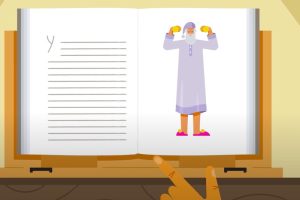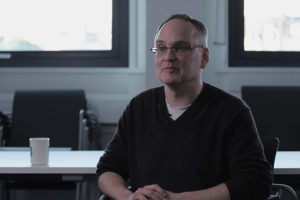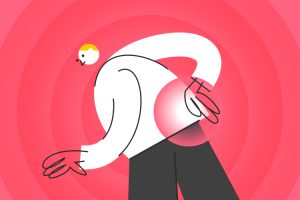Speaking multiple languages can improve stroke out...
Patients who speak more than one language seem to be twice as likely to have a better outcome after stroke
What information do we use to evaluate one another? Why do we fail so often when it comes to judging the capabilities of others? Richard Clarke Cabot Professor of Social Ethics at Harvard University, Mahzarin Banaji, speaks on why flipping a coin may be a good predictor of happy marriage.
When we listen to music, people who are experts can tell the difference between what is really good and what is inferior. Experts should be able to tell, and often they can. If you give them two recordings made by high school students who are still struggling, and someone like Segovia, they will tell you that the Segovia playing is better than the high schoolers. We know that they’re not completely off when they say that, but we’re more interested in situations where two people seem to be equally good. Does our mind have some beliefs about them that will make us actually hear the music differently? If they’re right, if the artists are right, that they’re objective and all they do is listen to the sound, there should be no difference between what they tell us is good music and the actual objectively better musician.
We actually believe that this is a problem. We are probably losing good talent, because in many spheres that could be in the area of sports, or business, where we tend to put more emphasis on who seems to us to be naturally gifted. We’re not saying how one should pick, but we are saying that it is quite interesting that even amongst experts there is a very interesting difference between what they say and what they do. So the question that one might ask, first of all is, is this generalizable? Does this happen in any other fields besides music? Maybe music is a special quirky area, where people seem to not know what they really want. It’s not true, it actually turns out it happens in other fields.
One of the hopes is that the science of understanding how we make these choices will develop enough so that we will be able to say, if you’re interested in a person to be a salesman versus somebody, who you want to be a data analyst or whatever, that there are certain properties that you might want to look for which may not be obvious from an interview. Very soon I think interviews will seem very old-fashioned to us. I think that what goes into the decision about whether to pick somebody to be a colleague, somebody you want to hire for your business is the same kind of mechanism that goes into choices about who should be our partner, who should be a romantic partner, who should be a life partner. I think in many ways we be equally wrong.

Patients who speak more than one language seem to be twice as likely to have a better outcome after stroke

Psychologist Daniel Müllensiefen on our ability to remember musical elements, music in different cultures and ...

Psychologist Mark Lumley on behavioral dysfunction, categorizing pain, and the effects of psychotherapeutic tr...